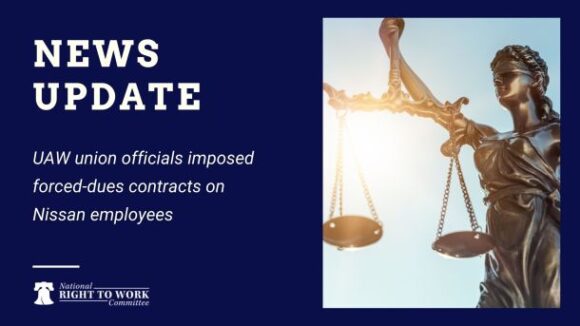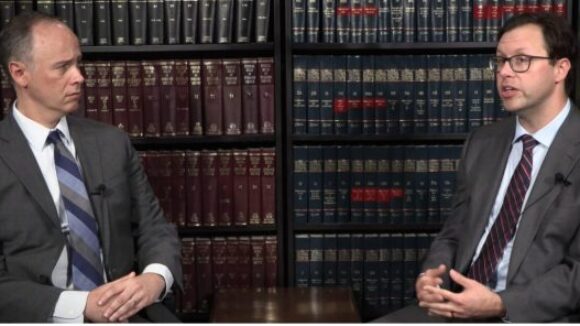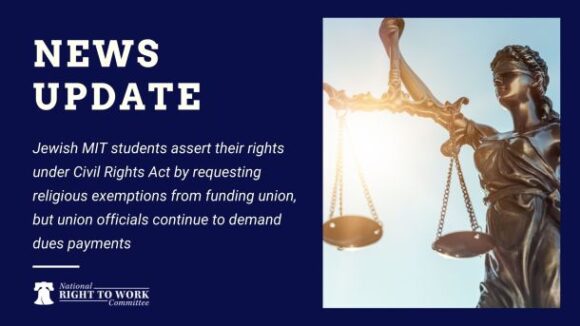Somerset, NJ, Nissan Parts Distribution Center Employees File Petition for Vote to Kick Out UAW Union
UAW union officials imposed forced-dues contracts on Nissan employees
 The Wall Street Journal looks at the political decision to file a complaint against Boeing and the political decision to withdraw it:
The Wall Street Journal looks at the political decision to file a complaint against Boeing and the political decision to withdraw it:
What a sham, or scam, or choose a synonym. On Wednesday, the International Association of Machinists approved a new contract with Boeing in which the company agreed to make its 737 Max jet with union labor in Washington state. Yesterday, after getting the machinist all-clear, the National Labor Relations Board (NLRB) dropped its lawsuit against Boeing’s investment in South Carolina.
Has there ever been a more blatant case of a supposedly independent agency siding with a union over management in collective bargaining?
Boeing says the new contract wasn’t tied directly to a settlement of the NLRB complaint, and that it always made sense to build the 737 Max in Renton, Washington because its work force has experience on the current 737 and offers natural efficiencies.
But it’s hard to resist the conclusion that Boeing felt obliged to make the agreement to save its more than $1 billion investment in South Carolina, where it is building 787s. Boeing might have won a legal battle in the end, but first it would have to run through an administrative law judge, then the politicized and Obama-stacked NLRB, and only then would it get to an appellate court. Meanwhile, its investment was in jeopardy and its legal bill was rising.
As for the NLRB, its decision to drop the case so quickly after the machinists cut their deal exposes how politically motivated the Boeing suit was. The NLRB is supposed to be a fair-minded referee in labor disputes, making sure neither side breaks the law. But the board put its fist squarely on the union side to make Boeing pay a price for moving one of its 787 assembly lines to a right-to-work state, to make sure Boeing never did that again, and to demonstrate to any other unionized company that its investment is at risk if it makes the same decision.
By dropping the case, the Obama team at the NLRB can claim it delivered those lessons without ever having to contest them in court. Oh, and Democrats running for Senate in right-to-work states, like Tim Kaine in Virginia, are spared from having to endorse a union position that is unpopular because it costs their states jobs.
The damage here goes well beyond Boeing, which presumably understands the tradeoffs. The NLRB is exposed as one more federal agency that can’t be trusted to make honest decisions. The ability of the 21 right-to-work states, which passed such laws under the 1947 Taft-Hartley Act, to attract businesses from pro-union states will also be eroded. The AFL-CIO may cheer that message, but in practice the result is likely to be that more companies simply send jobs overseas where there’s no NLRB. Congratulations.

UAW union officials imposed forced-dues contracts on Nissan employees

A new federal lawsuit from a National Right to Work Foundation-backed Starbucks employee, currently pending at the D.C. District Court, could upend the federal agency and result in a ruling that the current Labor Board’s structure violates the Constitution.

Jewish MIT students assert their rights under Civil Rights Act by requesting religious exemptions from funding union, but union officials continue to demand dues payments